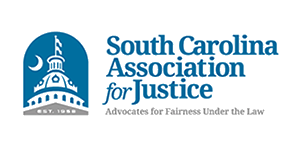Drivers have more distractions on the road now more than ever. Cell phones, GPS navigators, and a tendency to multitask behind the wheel are all dangers that cause life-altering injury every day. When a driver gets distracted behind the wheel, they create a massive safety risk for everyone on the road. In fact, recent studies have shown that using your phone while driving impairs your judgment on a level comparable to driving while intoxicated. At Evans Moore, LLC, our Georgetown distracted driving attorneys understand how car accidents turn lives upside down. Not only must you live with your injuries, but you are now facing the reality of costly medical bills, property damage, lack of transportation, and missed time at work because of another driver’s recklessness.
At Evans Moore, LLC, our legal team believes innocent passersby who suffer injury from another driver’s negligence are entitled to as much financial restitution as they need to heal from this unfortunate accident. While we know this is a very painful period to endure, our legal team can fight to recompense you for the many losses you have suffered. You are not helpless in addressing the person who caused your accident; allow us to fight for your legal rights and hold the person responsible for your injuries accountable for their actions. Call us at (843) 995-5000 today to schedule your free consultation.
Examples of Distracted Driving
There are three main types of distractions drivers can exhibit behind the wheel: manual, visual, or cognitive. They can occur by themselves or simultaneously.
- Manual distractions are those that take one or both of the driver’s hands off the wheel. Instead of driving properly, the motorist may send a text, change the radio, or reach for an item in the back seat. A manual distraction prevents the driver from having full control over the vehicle.
- Visual distractions are those that take the motorist’s eyes off the road. When the driver isn’t paying attention to the road ahead, they can’t see if there’s a hazard, stopped traffic, or a situation that requires them to slow down or maneuver out of the way.
- Cognitive distractions are those that take the driver’s mind or mental focus off the task of driving. When you’re daydreaming or worried about a big presentation you have to give at work, you’re not paying attention to your surroundings. It makes it difficult to get to your destination safely because you’re unable to process what’s happening around you.
Drivers have a legal duty to take special care in regard to the safety of others on the road because obstacles can unexpectedly present themselves at any moment. Unfortunately, most accidents are caused by some sort of driver error resulting from a medley of distractions, including:
- Using your cell phone
- Using a GPS
- Self-grooming (fixing hair, putting on make-up, etc.)
- Eating
- Drinking
- Listening to loud music
- Having an emotionally charged conversation
- Tending to a pet or children
- Turning to look at a passenger
- Acts of road rage, such as yelling at another driver
Proving a distracted driver was the cause of your accident is difficult. While electronic devices leave a record when they are used, other types of distracted driving—such as listening to loud music or personal grooming in the rearview mirror—are more challenging to provide evidence of without the help of a resourceful Georgetown distracted driving attorney. Evans Moore, LLC has the experience and skills to locate crucial evidence proving that the other motorist was at fault for the crash.
Important Dos and Dont’s After a Distracted Driving Accident
Most people are in a state of shock after a car accident. They’re unsure of what to do next and how to go about proving liability. It’s important that you remain calm and follow the steps below to ensure you can recover the maximum available compensation from the at-fault driver.
- Step 1: Call 911 and report the crash. South Carolina § statute 56-5-1260 requires that you notify law enforcement if the accident resulted in an injury or death. Wait for an officer to arrive at the scene and investigate the cause.
- Step 2: Speak to witnesses. Ask them their version of events and write down their names and phone numbers. They can confirm your story when you file an insurance claim.
- Step 3: If it’s safe to move around, take pictures of the crash scene, debris, skid marks, vehicle damage, and other relevant details to use as evidence in your case.
- Step 4: Ask the other motorist for their name, contact information, and auto insurance details.
- Step 5: Go to the hospital after leaving the accident site. Don’t wait for days or weeks before seeking a medical evaluation. Medical records are vital in proving your injuries were the result of a car crash. Additionally, insurance companies look at gaps in treatment as evidence that you didn’t get hurt, or your injury wasn’t serious enough to require treatment. Continue attending appointments until your providers release you from their care.
- Step 6: Keep copies of every document associated with the case. You can use it as proof of who caused the accident and that it resulted in injuries.
- Step 7: Hire an experienced Georgetown distracted driving lawyer from Evans Moore, LLC.
If you follow the steps above, it could improve your chance of winning your case. However, there are certain actions you should never take after a distracted driving accident. Insurance companies look for any reason to deny a claim or provide a settlement offer much lower than the injured party deserves. What you don’t do is just as important as what you do after a crash.
Don’t admit to any amount of fault. Be honest, but simply keep to the basic facts related to the accident when discussing it with the other driver, the investigating officer, the insurance company, witnesses, or anyone else. You don’t really know who’s at fault until the accident has been investigated. Under the state’s modified comparative negligence rule, the compensation you’re entitled to will decrease proportionately to your level of shared fault.
For example, if you incurred a total of $100,000 in expenses, but it’s found that you’re 20% to blame for the crash, you would only be allowed to recover a maximum of $80,000 in compensation. Additionally, the 51% fault rule bars you from receiving any monetary award if you’re more than 50% liable.
Don’t speak to the at-fault driver’s insurance company. Anything you say could be used against you and affect the outcome of your claim. Let your Georgetown distracted driving attorney from Evans Moore, LLC handle all communication on your behalf.
Don’t discard evidence. Even something that doesn’t seem significant, such as torn clothing, could help prove you got hurt in the accident.
Don’t sign any forms. We’ll review everything the insurance company sends you to determine if it’s something you need to complete. Sometimes they’ll request that you fill out documents that could waive their policyholder’s liability and prevent you from pursuing the maximum settlement allowed. If you don’t understand what you’re signing, you could end up signing away your rights.
Don’t stop medical treatment until you make a full recovery, or your doctor says you reached maximum medical improvement (MMI). MMI means your progress plateaued, and additional medical intervention won’t improve the injury any further. You want to make sure you know your total costs before requesting a settlement amount from the insurance company.
How to Determine Liability After a Car Accident
South Carolina has a traditional fault system in place, which informs financial responsibility after a car crash. The fault system means that the person who caused the accident is automatically liable for the victim’s damages. Damages are the expenses and intangible losses associated with an accident or injury. They include both economic and non-economic damages.
Economic damages refer to actual expenses, such as:
- Medical bills
- Lost wages
- Car repair or replacement costs
- Out of pocket expenses
Non-economic damages refer to intangible losses, such as:
- Pain and suffering
- Mental anguish
- Emotional distress
- Physical impairment or disfigurement
- Loss of consortium
Non-economic damages are usually difficult to calculate since there isn’t an invoice or billing statement to refer to while determining a fair compensation amount. When the insurance company or jury is reviewing an accident victim’s damages, they might use some of the contributing factors below to come up with the monetary value of non-economic damages:
- Type and severity of the injury
- The time it takes to recover
- Type of medically necessary treatment
- Total economic damages
- Psychological or emotional trauma experienced from the accident
- Affect of the injury on quality of life
- Amount of auto insurance coverage listed on the at-fault driver’s policy
- Relevant evidence provided during the case
Contact a Georgetown Distracted Driving Attorney
Just because you were the victim of another driver’s inattention does not mean you should be saddled with the burdens a car accident presents. At Evans Moore, LLC, our distracted driving attorneys believe you deserve better and are ready to fight for your just restitution.
Since opening our firm in 2010, we’ve recovered over $100 million in compensation for accident victims. We fight hard to protect our clients’ rights and seek the justice they deserve. When you hire us, you can feel confident knowing we’re on your side and will be there for you until the very end. Our legal team has earned a reputation for our favorable trial verdicts and insurance settlements.
If you or someone you love has been the victim of a distracted driving accident, don’t hesitate to contact our Georgetown offices at (843) 995-5000 for support and guidance in your case.









